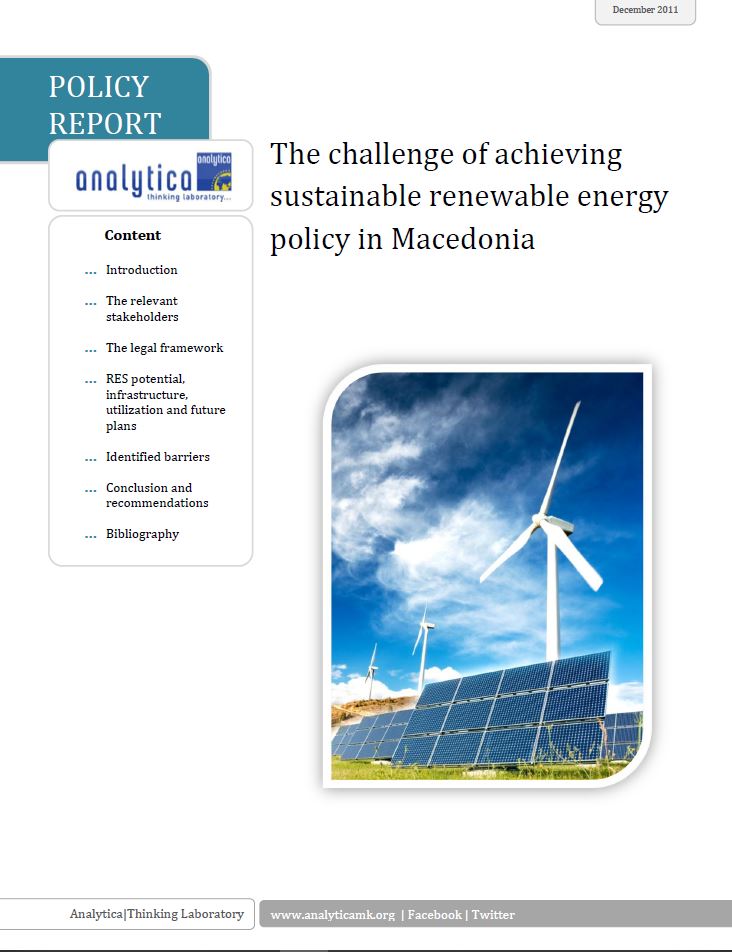The Challenge of Achieving Sustainable Renewable Energy Policy in Macedonia
The Challenge of Achieving Sustainable Renewable Energy Policy in Macedonia
Author(s): Ana Stojilovska
Subject(s): Energy and Environmental Studies, Governance, Environmental and Energy policy, Economic development, Environmental interactions, EU-Approach / EU-Accession / EU-Development, EU-Legislation
Published by: Аналитика Тинк-тенк Организација
Keywords: North Macedonia; EU integration; energy policy; energy sector; energy development and sustainability; renewable sources of energy; legal framework; hydro energy; wind energy; solar energy; biomass; biogas; geothermal energy; environmental pollution;
Summary/Abstract: Macedonia’s commitment for becoming an EU member state brought many reforms in the country. The energy sector, previously with no strategic vision of its development and no sustainability, has begun to transform to comply with the market economy model. Macedonia made efforts to fulfill the commitments coming from the EU candidate status including reforming the energy sector and prioritizing the renewable sources of energy (RES) policy. However, the general perception is that the invested efforts have not brought the desired results. Although the strategies are put in place, their implementation is progressing slowly hampered by a set of barriers which discourage potential investors. In addition, the undertaken efforts were partial and insufficient since the energy sector reforms are tied to other system reforms. Last but not least, there is an absence of a coherent and horizontal policy in promoting RES and a lack of inter-sector cooperation in the area. These challenges question the long-term sustainability of the RES policy in Macedonia. Having limited investments in RES sector; furthermore a set of policy, financial, legal, administrative and information obstacles which add to the existing investment uncertainty and low environmental awareness, it is of utmost importance, the RES policy to be thoroughly researched. The RES policy is important for Macedonia not only because it is an obligation steaming from the respective international agreements, but because Macedonia has underused RES potential. By investing in RES, the county would secure its future in light of its increasing energy demand, the high import dependency as well as the exhaustibility of the fossil fuels.
Series: ANALYTICA - Policy Reports
- Page Count: 27
- Publication Year: 2011
- Language: English
- Content File-PDF

